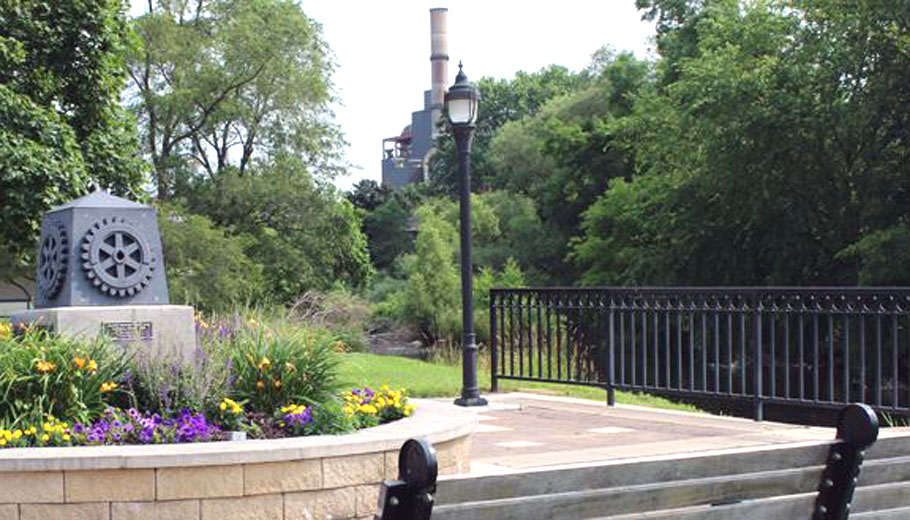
Berrens managing city’s urban forest
By Robert Cloud
An aerial photo of Waupaca shows a canopy of trees covering about one-third of the city’s surface.
Public Works Director Justin Berrens discussed Waupaca’s urban forest at the common council’s Feb. 7 meeting.
Since Russ Montgomery’s retirement, Berrens has taken responsibility for Waupaca’s forest management. He has enrolled in the Community Tree Management Institute, a Wisconsin Department of Natural Resources program that trains municipal staff on urban forestry.
Berrens said the city has approximately 500 street trees and 600 trees in its parks.
He noted the many benefits of trees in the city.
Trees produce oxygen, absorb carbon dioxide, filter particulates and remove nitrogen oxides, ammonia, sulfur dioxide and ozone from the atmosphere.
They also contribute to water conservation and soil preservation. During storms, rain trickles through the leafy canopy, rather than immediately striking the ground and going directly into storm sewers or flooding streets. The soil has more time to absorb the rain.
Trees also provide shade and reduce temperatures, as well as enhance property values and the quality of life in a community.
Waupaca’s tree canopy covers about 1,139 acres. Impervious surfaces, such as streets and parking lots, cover 282 acres, Berrens said.
Berrens noted that while the purchase of new equipment or the construction of new buildings depreciate over time, the value of planting trees appreciates as they mature.
He estimated the value of the city’s trees at more than $1.5 million.
The city’s forestry budget is $39,500, which comes from Public Works’ $1.1 million total annual budget.
Public Works plants 20-50 small trees per year. The budget also pays for trimming and tree removal, especially after a storm.
Friends of Waupaca Parks, the DNR, the Arbor Day Foundation and the Waupaca Rotary Club contribute to the city’s forestry efforts.
American Transmission Co. also provides grants to municipalities to pay for planting trees.
Lead water lines
In August 2022, the Waupaca Common Council authorized $280,000 for replacing private lead water lines.
Most of lead laterals were on High Street and Harrison Street, which were under construction last year.
At the Feb. 7 meeting, the council authorized an additional $64,640 for five laterals. The funds will cover the private owners’ expenses for replacing the lines.
Ald. Henry Veleker asked Berrens how many more lead laterals remain in the city.
Berrens estimated 450 more residential service lines may need to be replaced.
